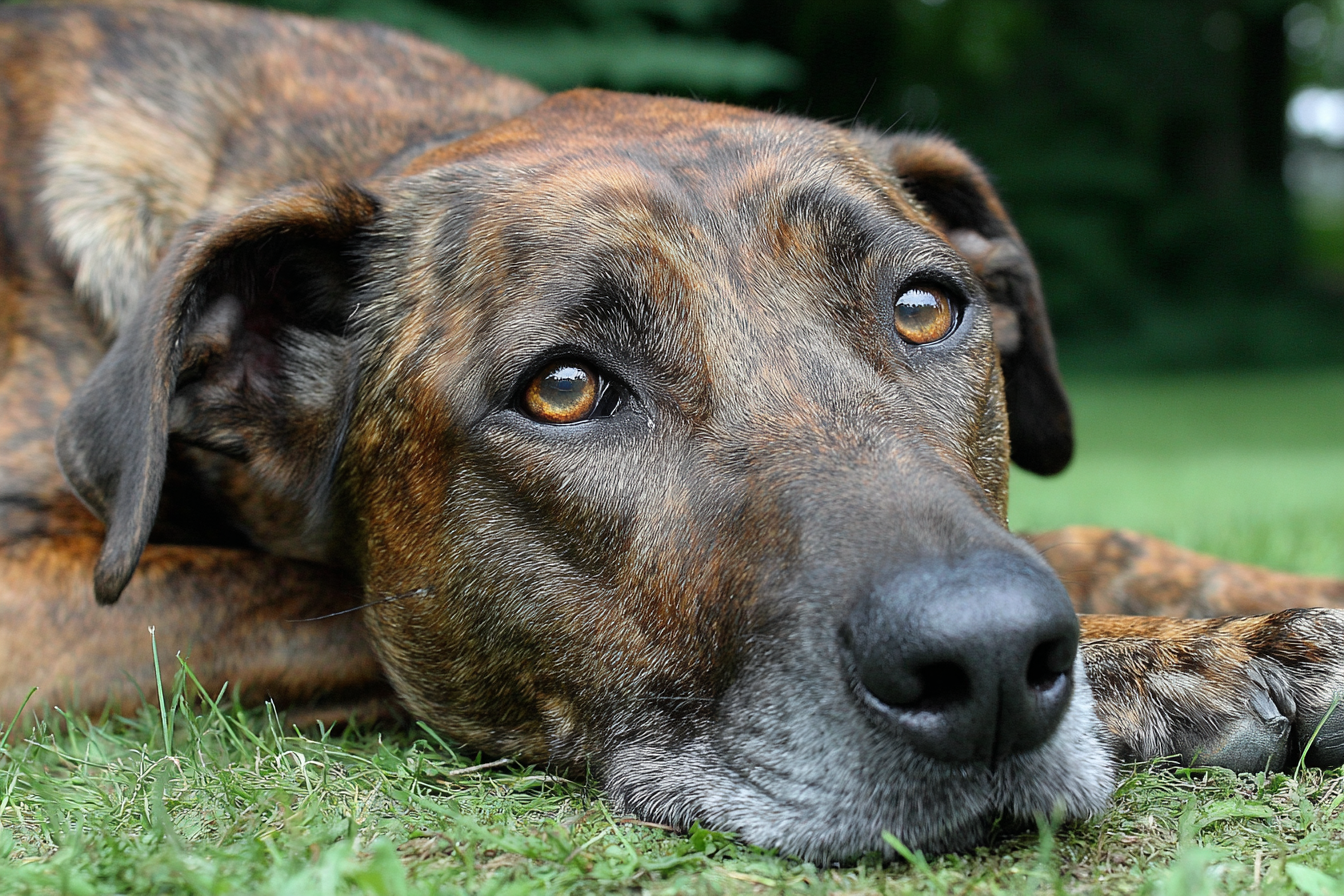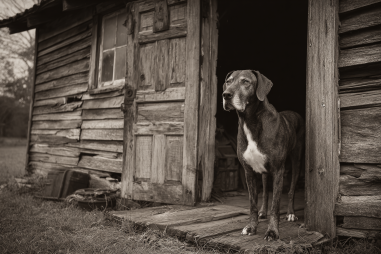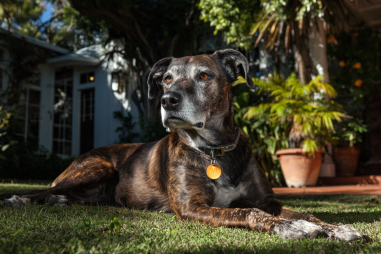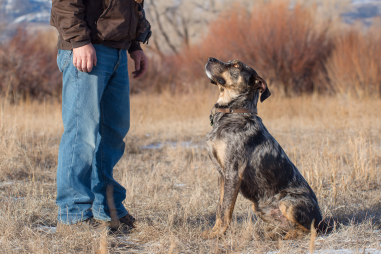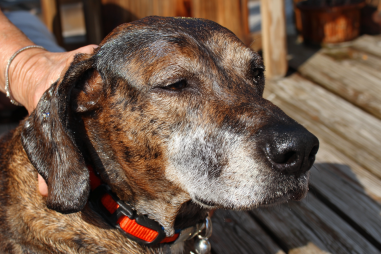Plott Hounds are known for their remarkable stamina, intelligence, and loyalty, making them excellent companions and hunting dogs. Like any breed, they come with specific health considerations that owners should be aware of to ensure their pets lead a long, happy, and healthy life. Understanding common health issues, recognizing warning signs early, and embracing preventive care are essential steps in providing the best care for your Plott Hound.
Overview of Plott Hound Health
The Plott Hound is a robust and generally healthy breed, celebrated for its endurance and hunting abilities. Bred originally in North Carolina for tracking boar and other game, the Plott Hound has a sturdy physique and a resilient constitution. Despite this, all dogs, including Plott Hounds, can face health challenges that may be genetic or influenced by lifestyle and environment.
Maintaining a good understanding of these potential issues allows owners to take proactive measures that promote wellness and reduce the risk of serious complications. Regular checkups, a balanced diet, proper exercise, and close observation for any unusual symptoms are all critical to managing your Plott Hound’s health effectively.
Genetic Predispositions and Breed-Specific Conditions
While Plott Hounds are relatively healthy, there are some genetic and breed-specific conditions that owners should be aware of. Knowledge of these predispositions can help in early detection and management.
- Hip Dysplasia: This is a fairly common issue in medium to large breeds, where the hip joint doesn’t develop properly, leading to arthritis and pain. Regular vet visits and appropriate breeding can reduce the risk.
- Ear Infections: Plott Hounds have floppy ears, which can trap moisture and debris, making them prone to infections. Regular ear cleaning and inspections are key preventive measures.
- Hypothyroidism: This condition, caused by an underactive thyroid gland, can lead to weight gain, lethargy, and skin problems. Blood tests can diagnose hypothyroidism early, allowing timely treatment.
- Progressive Retinal Atrophy (PRA): A hereditary eye disorder that may cause vision loss over time, PRA should be monitored by your veterinarian with periodic eye exams.
- Bloat (Gastric Dilatation-Volvulus): Though less common in Plott Hounds compared to other breeds, bloat remains a serious condition where the stomach twists, requiring immediate veterinary intervention.
Signs to Watch For Common Diseases
Being vigilant about your Plott Hound’s behavior and physical condition is vital for catching health issues early. Some signs to watch for include:
- Changes in Mobility: Limping, stiffness, or reluctance to move could indicate hip dysplasia or arthritis.
- Ear Scratching or Odor: Frequent ear scratching, head shaking, or a foul smell from ears can suggest infections.
- Altered Energy Levels: Unusual lethargy, excessive sleeping, or loss of interest in activities may hint at hypothyroidism or other systemic problems.
- Appetite and Weight Fluctuations: Sudden changes in appetite or weight can be symptoms of various health issues, including thyroid disorders or digestive problems.
- Eye Discomfort or Changes: Redness, discharge, cloudiness, or visible changes in the eyes should prompt a veterinary check.
- Abdominal Distention or Restlessness: An enlarged or hard abdomen, combined with signs of distress, may be an emergency situation like bloat.
Preventative Care and Regular Veterinary Checkups
Prevention is the cornerstone of good health for your Plott Hound. Consistent veterinary care helps catch potential issues before they become serious. A good preventive care plan should include:
- Annual or Biannual Exams: Routine veterinary visits allow for professional assessments of your dog’s overall health, vaccinations, dental health, and screening for underlying conditions.
- Vaccinations: Keeping up with core and non-core vaccines protects your Plott Hound from contagious diseases.
- Parasite Control: Regular treatments for fleas, ticks, and worms help prevent infections and infestations.
- Dental Care: Regular brushing and professional cleanings reduce the risk of periodontal disease.
- Genetic Testing: For serious inherited diseases such as PRA or hip dysplasia, genetic testing can inform responsible breeding practices and early interventions.
Nutrition and Exercise for Optimal Health
Good nutrition and regular exercise are vital components for maintaining a healthy Plott Hound. Since they are active dogs, they require a balanced diet formulated to support their energy needs, muscle maintenance, and overall health.
- Balanced Diet: Providing high-quality dog food that meets AAFCO standards ensures your Plott Hound gets all essential nutrients, vitamins, and minerals.
- Weight Management: Avoid overfeeding and monitor your dog’s weight closely. Obesity can exacerbate joint issues and other health problems.
- Hydration: Always provide fresh water, especially after vigorous activity, to keep them properly hydrated.
- Exercise Routine: Regular physical activity like daily walks, playtime, and mental stimulation helps maintain cardiovascular health, muscle tone, and a balanced temperament.
Tips for Early Diagnosis and Treatment
Early diagnosis dramatically improves the prognosis for many health issues in Plott Hounds. If you notice any unusual signs or behavior, don’t hesitate to contact your veterinarian. Here are some tips to help with early diagnosis and treatment:
- Keep a Health Diary: Record any changes in appetite, behavior, physical condition, or symptoms to share with your vet during visits.
- Routine Monitoring: Check your dog’s ears, eyes, skin, and joints regularly at home to catch subtle changes early.
- Follow Veterinary Advice: Adhere to recommended medications, therapies, or dietary changes prescribed by your vet to manage or treat conditions effectively.
- Seek Specialist Care: For breed-specific or chronic conditions, consulting a veterinary specialist such as an orthopedist or ophthalmologist may be beneficial.
- Respond Quickly: Some health situations, like bloat or sudden severe lameness, require emergency veterinary attention. Knowing the signs and acting fast can save lives.
Putting Your Plott Hound’s Well-being First
Prioritizing your Plott Hound’s health means being proactive and informed. By understanding the breed’s common health issues, maintaining regular veterinary care, providing balanced nutrition and exercise, and staying alert to any signs of illness, you can ensure your loyal companion enjoys a vibrant and active life. Remember, your attentiveness and care not only help keep your Plott Hound healthy but also strengthen the incredible bond you share.

